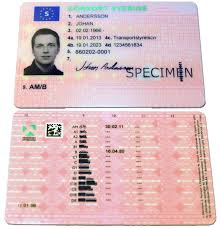 Driver's License Without Test: A Controversial Issue
Driver's License Without Test: A Controversial Issue
In numerous parts of the world, getting a driver's license includes a rigorous process, including written tests, useful roadway tests, and in some cases even vision assessments. The function of these tests is clear: to make sure that people are not just familiar with the guidelines of the road however likewise capable of operating a car safely. However, a growing pattern in some regions has emerged-- providing driver's licenses without a standard testing process. This questionable technique has triggered debates about security, availability, and the stability of licensing systems.
The Growing Trend
The idea of providing driver's licenses without going through the usual testing procedures is often warranted by various arguments. In some instances, states or countries have embraced this policy as a method to accommodate applicants who may have had prior driving experience however lack the needed documentation to show it. This typically applies to immigrant populations who, despite being skilled drivers in their home nations, may have a hard time to pass local tests written in a foreign language.
Supporters argue that this practice can increase movement for lots of individuals, providing them with higher access to job opportunity, körkort online Recensioner education, and vital services. It can likewise alleviate blockage in testing centers, improving wait times for those who do still need to take tests.
Arguments For and Against
Pros:
Increased Accessibility: By getting rid of barriers such as language requirements or complex testing treatments, more individuals can obtain a license and add to society.
Experience Recognition: Many people have practical driving experience but do not have formal accreditation. A system that acknowledges previous experience could possibly develop much safer chauffeurs on the roadway.
Economic Benefits: Improved access to a driver's license can result in increased economic participation, especially for lagligt c körkort pris körkort på kort tid online (cameradb.review) low-income people who count on automobiles to commute to work.
Cons:
Safety Concerns: The most considerable argument against issuing licenses without tests is the prospective risk to public security. Without appropriate evaluation, unqualified drivers might threaten themselves and others on the road.
Devaluation of the License: Allowing individuals to drive without passing a test can undermine the perceived value and value of having a driver's license, potentially leading to lax attitudes towards driving standards.
Liability Issues: In the occasion of an accident involving an untested driver, concerns of liability may occur, complicating insurance procedures and legal responsibilities.
Case Studies
Some regions that have actually carried out policies enabling licenses without traditional testing have seen mixed results. For example, in California, the Department of Motor Vehicles (DMV) permits undocumented immigrants to acquire a driver's license without a formal driving test if they can demonstrate road knowledge. Advocates of this policy have actually highlighted increased roadway safety due to better-licensed motorists. Nevertheless, critics remain worried about the capacity for c körkort enkelt online unqualified people to operate lorries, requiring reforms in the licensing procedure to maintain safety standards.
Similarly, countries like Germany have programs to assess previous driving experience for immigrants, however they still require dry runs in specific phased programs to ensure security on public roads.
Future Outlook
As society comes to grips with the balance in between ease of access and public safety, the argument surrounding driver's licenses without tests is likely to continue. Policymakers will require to consider innovative solutions that ensure individuals can acquire access to essential driving privileges while likewise maintaining public security standards.
Options such as phased licensing programs, boosted driver education, or increased usage of simulators could serve as bridges between strict testing and greater accessibility. Eventually, the goal needs to be a balanced method that appreciates the rights of people looking for mobility while dedicating to the safety of all road users.
In conclusion, the problem of giving driver's licenses without traditional tests is complex and diverse. It requires careful consideration, regard for human rights, c köRkort fördelar and a steady commitment to public security. As the discussion continues, it will be essential for all stakeholders to stay participated in conversations that are both useful and forward-thinking, guaranteeing that the roadway ahead is safe for everyone.